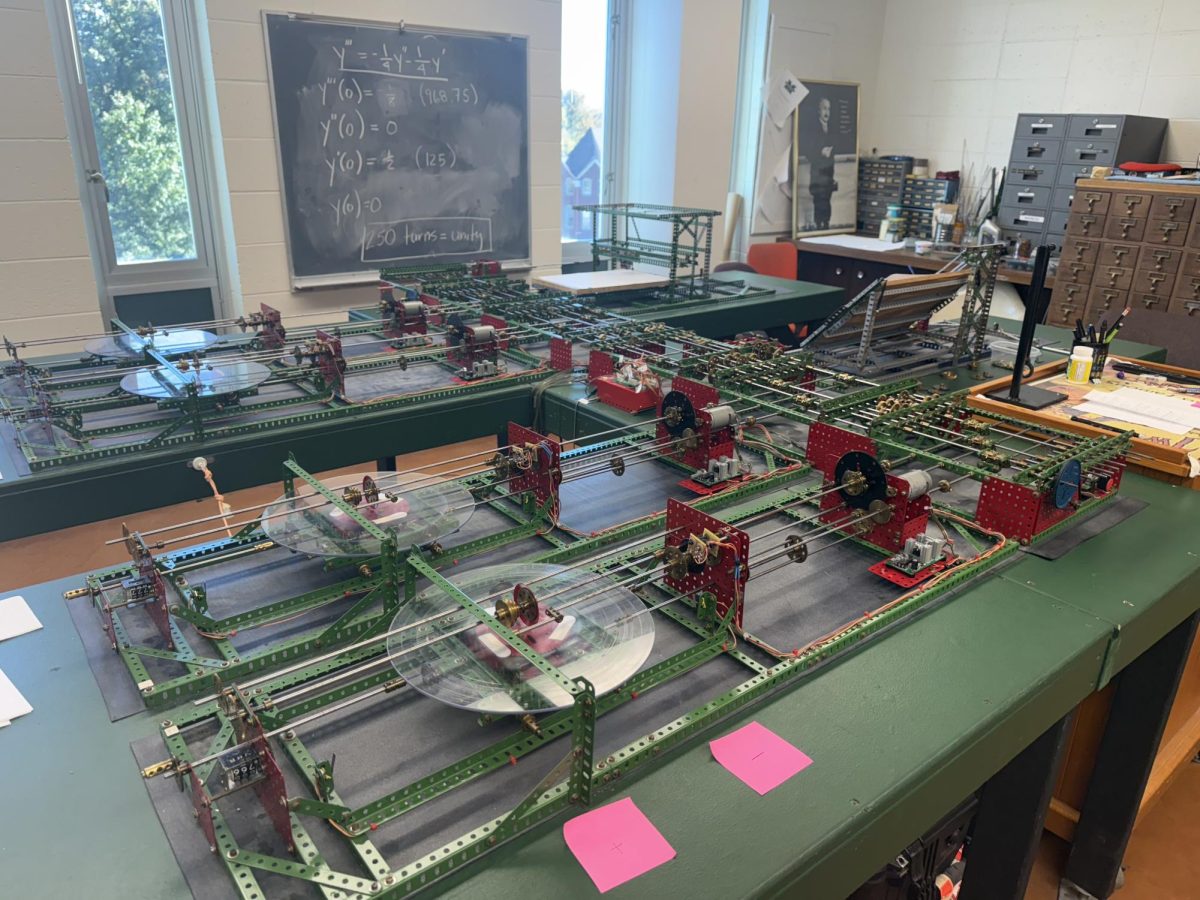Jared Fishman, the founder and executive director of Justice Innovation Lab, has been asked a consistent question since he was small: “What do you want to be when you grow up?”
His answer to this question went from firefighter, to ambassador, to attorney.
He argued, though, that this question should be shifted with the change of one word: who.
“I think the question that we should be asking people is, ‘Who do you want to be when you grow up?’” Fishman said.
Although “lecturer” may have not been mentioned in his list, that’s where Fishman ended up Thursday, April 17, at Marshall University.
As part of the Amicus Curiae lecture series, Fishman discussed his experience working in the United States justice system, which he said is “nothing like ‘Law & Order.’”
“I saw a lot of poverty,” he said. “I saw an inordinate amount of people suffering from mental health challenges and addiction. I saw a whole lot of unresolved trauma.”
As a prosecutor, Fishman struggled with the daily decisions, which were life-altering for those involved. That’s what drove him to make a systematic shift in his work.
“I decided if I was going to use this power – this strong, strong power for justice – I wanted to do it on behalf of marginalized communities, people who were often neglected and left behind,” he said.
The New Orleans case of Henry Glover was a pivotal moment for Fishman’s career. The African American man was shot by New Orleans police and later burned, along with this car, just days after the catastrophic Hurricane Katrina in 2005.
“Our job was to police the police,” he said. “I had told the jury that it was the rule of law that protects us from the worst of our human impulses, and I asked them to find those officers guilty.”
In 2010, three New Orleans police officers were convicted of the crimes. Fishman said following this incident, the department has improved in their procedures and training.
“Institutions that are even as corrupted and damaged as one like the New Orleans Police Department can be better,” he said. “It can be better when we shine light on the things that we might rather not talk about.”
Another case, the 2015 murder of Walter Scott in Charleston, South Carolina, caught Fishman’s attention. He was shot after running from a police officer following a traffic stop.
Fishman and his team landed the conviction, which happened to be one of the longer sentences a police officer has been given.
But, rather than feeling victorious, Fishman said he felt numb. Sure, they had won, but at what cost?
“I knew that no matter what, Walter Scott wasn’t coming back. And I knew that the next day, the policies, procedures and systems that all contributed in their own ways to Walter Scott’s death were still going to be in place,” he said.
The loss of human life, the loss of community and uncertainty for the future sent Fishman looking for his next “what,” leading him to “who” he now wanted to be.
After taking a call from the same Charleston prosecutor that led him to the Scott case, Fishman knew what he needed to do next: achieving a more effective and fair justice system.
The founding of the Justice Innovation Lab in 2020 brought on many discoveries and realizations about the justice system as we know it, but particularly, what was being accomplished.
“Our justice system isn’t necessarily designed to achieve justice,” Fishman said. “It’s designed to achieve punishment, and one thing I have learned prosecuting many people over the years is that we should never confuse punishment for justice, and we should never confuse punishment for accountability, and we should never confuse punishment for public safety.”
Considering 60% of violent crime victims in America opt-out of the system entirely, Fishman argued this alone shows the ineffectiveness of the current procedure.
Rather than dissecting one big system, Fishman suggested the American justice system is really thousands of small systems.
Now, as an innovator, Fishman uses data and his experience as a prosecutor to aid communities in building more effective systems.
“You need to understand the world as it is – imagine the world as it could be – and then do justice,” he said.
Fisherman ended his lecture on a literal high note, engaging the audience in a sing-along to “This Little Light of Mine,” testing his theory – and his guitar skills – with the power of community.
The lecture signified the end of the series for the academic year, but due to a halt in funding toward the West Virginia Humanities Council thanks to DOGE, organizer Patricia Proctor fears it could be the indefinite end, urging the audience to support the series in all facets.
“The West Virginia Humanities Council has generously supported this lecture series since 2011,” Proctor said. “That enables us to bring a really wide-ranging diverse set of speakers in here to address topics that should be important to all of us.”
Proctor said the speakers for next year are already planned and committed to lecturing at the university, and she believes the community shares her belief in the importance of humanities.
“West Virginians and Appalachians care about our culture and preserving it,” she said.
Sarah Davis can be contacted at [email protected].



















